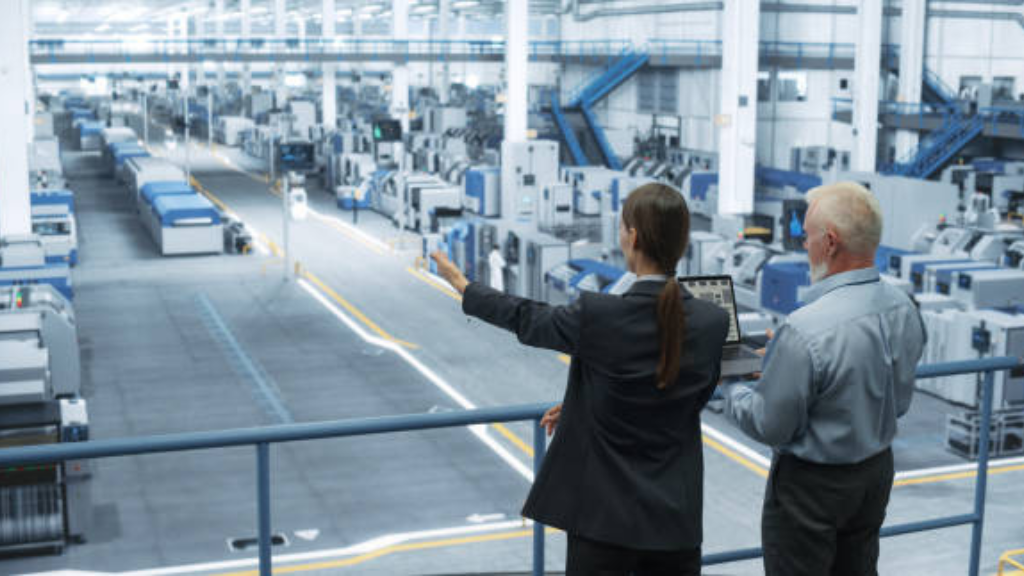Many businesses around the world get their products made in China. But how can they be sure that these factories follow the right rules, make good products, and treat workers fairly? Factory audit services in China help businesses check if a factory is reliable, safe, and able to produce high-quality goods.
Without proper audits, companies may face problems like poor-quality products, delivery delays, or even working with factories that break the rules. A well-planned audit protects businesses from losses, legal troubles, and supply chain disruptions. This process helps companies avoid risks and build a strong supply chain.
Why Are Factory Audits Important?
Factory audits help businesses confirm if a supplier is trustworthy and capable of meeting production needs. Without an audit, businesses might work with factories that fail to meet quality, safety, or legal standards.
Key Benefits of Factory Audits:
• Avoids Quality Issues – Helps businesses find problems in the factory’s production system before placing large orders.
• Ensures Compliance – Confirms that manufacturers follow safety laws, labor rights, and industry standards.
• Reduces Risks – Prevents issues like late deliveries, defective products, or factory shutdowns.
• Checks Ethical Practices – Audits help businesses ensure workers are treated fairly and factories meet ethical standards.
• Protects Brand Reputation – A good factory ensures that customers receive high-quality, safe products.
Different Types of Factory Audits
Factory audits cover different areas of inspection. Each type of audit focuses on a specific part of the factory’s operations, safety, and management.
1. Manufacturing Factory Audits
A manufacturing audit checks if a factory can produce goods that meet a company’s quality standards. It ensures the factory can handle large orders without problems.
• Confirms the factory has the right tools, staff, and resources.
• Finds problems in the production process that may affect quality.
• Checks if factory managers follow quality control steps.
2. Ethical & Social Audits
Ethical audits focus on worker conditions, fair wages, and workplace safety. Many companies now require their suppliers to follow ethical business practices.
• Reviews pay, working hours, and worker treatment.
• Ensures compliance with local labor laws and fair-trade policies.
• Helps businesses work with factories that treat workers fairly.
3. Structural & Safety Audits
Structural audits check if the factory building, fire safety measures, and emergency exits meet legal standards. This helps protect workers and prevent accidents.
• Ensures the factory meets fire and safety laws.
• Identifies risks like weak structures or missing emergency exits.
• Helps businesses avoid working with unsafe factories.
Factory Audit Checklist: What Auditors Check
A factory audit follows a checklist to examine all important areas of a factory. This helps businesses get a full picture of how a factory operates.
1. Factory Background & Compliance
This part of the audit checks the factory’s history, legal documents, and certifications. It ensures that the factory is legally registered and meets industry standards.
2. Production Capabilities & Equipment
A factory must have the right machines, tools, and staff to produce high-quality products. Auditors check if the factory can meet production goals efficiently.
3. Quality Control & Product Testing
A factory must have a strong quality control system to prevent defective products. This part of the audit checks if the factory follows testing and inspection processes.
4. Environmental Compliance
Many companies now want their suppliers to follow environmental regulations. Auditors check if factories use safe waste disposal methods and meet sustainability goals. They verify compliance with local and international environmental laws.
Steps to Conduct a Successful Factory Audit
To get the best results from a factory audit, businesses must follow a structured process to gather accurate information.
1. Set Clear Goals
Before an audit, businesses must define what they want to check. This helps auditors focus on key areas.
• Decide if the audit will check quality, ethics, safety, or all three.
• Set clear benchmarks for what is acceptable.
2. Conduct an On-Site Inspection
A factory audit should include a physical inspection of the factory’s operations, production process, and worker conditions.
• Observe production lines, machinery, and work processes.
• Inspect factory safety measures and working conditions.
3. Follow Up and Review Findings
After the audit, businesses must analyze the findings and request changes from the factory.
• Provide the factory with a list of improvements needed.
• Conduct follow-up audits to check if the factory has made improvements.
Factory audit services in China like those offered by Branding Manufacturing Services help businesses choose the right suppliers, ensure quality, and maintain ethical standards. In today’s fast-moving market, verifying a factory’s reliability is more important than ever. By conducting thorough factory audits, businesses can ensure high-quality, ethically produced products while avoiding costly mistakes.

